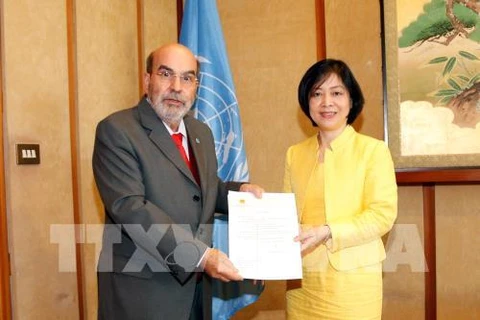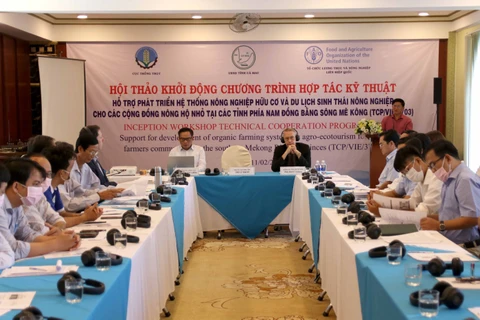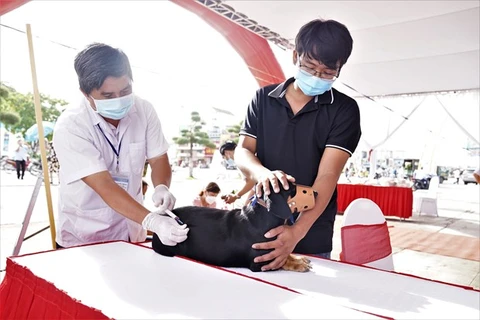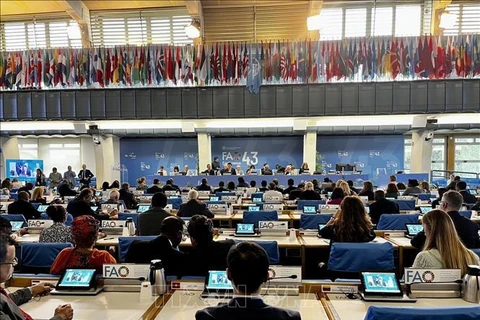 Vietnamese Ambassador to Italy Duong Hai Hung, Representative of Vietnam to FAO, speaks at the plenary meeting in Rome. (Photo: VNA)
Vietnamese Ambassador to Italy Duong Hai Hung, Representative of Vietnam to FAO, speaks at the plenary meeting in Rome. (Photo: VNA) Ambassador Hung, who is also Representative of Vietnam to FAO, emphasised in his remarks that ensuring sufficient food has become a challenge, especially for hundreds of millions of people in low- and middle-income countries. To seek long-term solutions to cope with the global crisis, Vietnam proposes some priorities for FAO and international partners to consider and support member countries, he said.
Firstly, it is necessary to support countries in implementing the national programme framework and transforming the agricultural-food system towards adaptability, comprehensiveness, and sustainability. The focus should be on innovative ways to enhance the participation and benefits of small-scale farmers in the agricultural value chain, reduce food losses and waste, promote e-commerce, and improve traceability systems, logistics, and quality control. It also involves developing diverse public-private partnership (PPP) models to attract private investment in sustainable agricultural value chains.
Vietnam wishes to collaborate with all relevant parties to promote agricultural commodity trade as the foundation for regional and global food security, affirmed the diplomat.
Secondly, he highlighted the need to expedite the green and digital agricultural transformation, as well as provide financial support, technology, and capacity-building for developing countries in the transition process to more diverse, sustainable, and climate-resilient food systems. Vietnam is ready to become a food innovation hub in Southeast Asia and will actively participate in comprehensive, digital, and green transformation initiatives in the agricultural sector.
Thirdly, promoting coordination and information-sharing in sustainable natural resource and water resource management, including trans-boundary water resources, marine resources, and South-South cooperation, is also important, Hung said.
The ambassador took the occasion to highlight Vietnam's efforts, stating that sustainable agriculture and food security are among the pillars of Vietnam's economic-social development strategy for 2021-2030, with priorities on developing eco-friendly and high-tech agriculture with low emissions, climate resilience, and supporting the improvement of rural residents’ livelihoods./.
VNA























